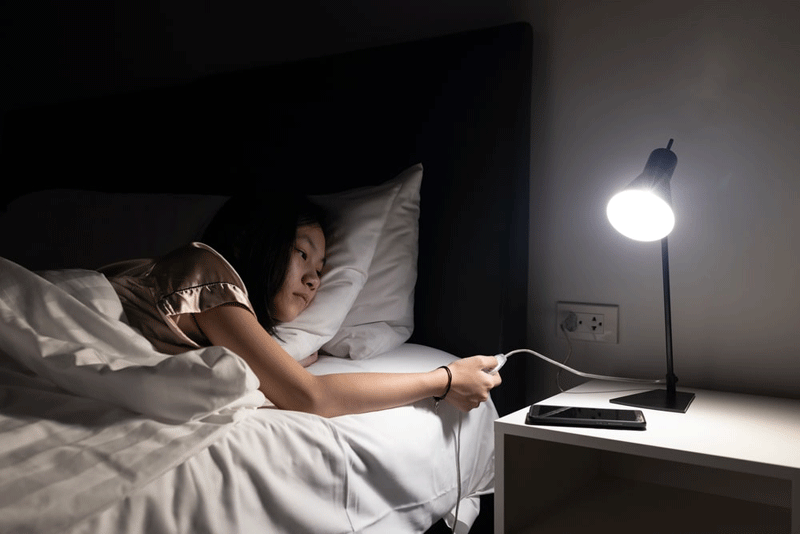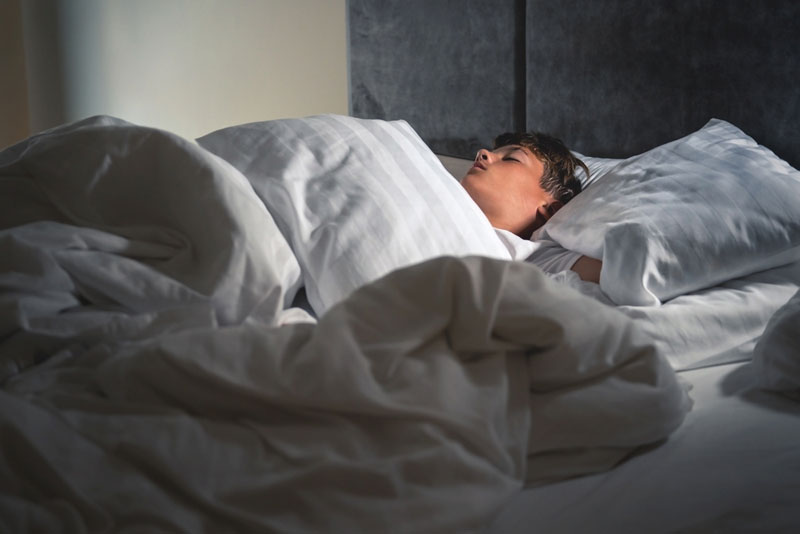Sleep plays a critical role in various bodily functions. It’s essential for healing and repairing your heart and blood vessels. Chronic sleep deprivation has been linked to a higher risk of heart disease, kidney disease, high blood pressure, diabetes, and stroke.
Adequate sleep helps improve brain function. During sleep, our brain forms new pathways to help us learn and remember information for the next day. Sleep deficiency alters activity in certain brain parts, which may cause trouble in decision-making, problem-solving, controlling emotions, and coping with change. Following the advice in this guide, you can improve your sleep quality by developing healthy sleep habits, enjoying the benefits of a good night’s sleep, and wake up refreshed.
Medella Springs Sleeping Supplements
At Medella Springs, NoctoPlex is specially formulated to enhance the quality of your sleep using natural ingredients. It’s been proven effective in helping you fall asleep quickly and maintain a restful sleep throughout the night. Should you wake up during the night, NoctoPlex aids in rapidly falling back asleep. One of the key benefits of this product is that it allows you to wake up feeling refreshed and alert without the grogginess often associated with sleep aids. Its natural composition ensures a gentle effect on your sleep cycle, promoting a healthier sleeping pattern.
The Importance Of Sleep
Sleep is crucial for physical and psychological well-being, yet it is often overlooked in our fast-paced and busy lifestyles. Getting enough restful sleep is critical in maintaining optimal health, promoting mental wellness, and improving our overall quality of life. Sleep deficiency has a significant impact on emotional well-being, including mood swings, feelings of sadness or depression, and lack of motivation. Adequate sleep helps you stay calm, controlled, and balanced.
Consequences Of Sleep Deprivation
- Sleep deprivation can negatively impact several cognitive functions, including attention, alertness, concentration, reasoning, and problem-solving abilities. This makes it harder to learn efficiently.
- Chronic sleep deprivation is linked to numerous health problems, including obesity, heart disease, and diabetes.
- Sleep deficiency also affects your driving ability and increases the risk of accidents. Drowsy driving is similar in danger to driving under the influence of alcohol.
How Much Sleep Do You Need?
The amount of sleep needed changes throughout your life. According to the National Sleep Foundation, adults need 7-9 hours of sleep per night, while teenagers need about 8-10 hours.
Tips For Healthy Sleep Habits
Sound sleep is crucial for your overall health and well-being. However, with the hustle and bustle of modern life, sleep is a positive affirmation for anxiety that many of us need to get quality rest. Let’s dive deeper into practical sleep tips:
Stick to a Sleep Schedule

Consistency is key to better sleep. Reinforce your body’s natural sleep-wake cycle by maintaining a consistent sleep pattern every day, even on weekends. Over time, this consistency makes it easier for your body to feel sleepy and wake up simultaneously each day naturally. The regularity of this habit sends a clear signal to your body’s internal clock, improving your overall sleep quality.
Create a Restful Environment

Your bedroom environment significantly impacts the quality of your sleep. Ensure your sleeping space is quiet, dark, and cool. Noise, light, and temperature extremes can disrupt the quality of your sleep. Consider using earplugs, a white noise machine, blackout curtains, or an eye mask.
Physical Activity

Regular physical activity can significantly improve the quality of your sleep, especially if it’s consistent and timed right. However, exercising too close to bedtime can lead to a surge in energy levels, making it harder to fall asleep.
Be Mindful of Eating and Drinking

What you eat and drink before bed can affect your sleep. Large or heavy meals can cause discomfort and indigestion, making sleeping difficult. Nicotine, caffeine, and alcohol deserve caution, too, as they can disrupt sleep patterns. Add probiotic-rich food to your routine to live a healthy life.
Manage Stress

Stress and overthinking can wreck sleep. Techniques like deep breathing, yoga, and meditation for sleep help calm your mind and prepare your body for sleep. Consider creating a “wind-down” routine in the evening that includes relaxation practices.
Limit Naps

Napping can be a great way to recharge, especially for those who don’t sleep enough at night. Long or irregular daytime napping can negatively impact nighttime sleep. Keep naps short (20-30 minutes) and avoid napping late in the day.
Red Light Therapy Before Bed

Exposure to red light at night can be beneficial. Unlike blue light, red light has a lower color temperature and is less likely to disrupt your circadian rhythm. Consider switching to red light bulbs in your bedroom or using a red light device in the evening to promote relaxation and better sleep quality.
Evaluate Your Room and Bedding

Your mattress, pillows, and bedding are crucial to your sleep quality. A comfortable bed and pillows are essential. Consider the age of your mattress and whether it provides the support you need.
Expose Yourself to Natural Light

Sunlight or bright light during the day helps keep your sleep-wake cycle healthy. This is especially advisable for individuals who spend a lot of time indoors. Try to spend some time outside every day, especially in the morning.
Sleeping Without a Pillow

While it might seem unconventional, sleeping without a pillow can benefit some people, especially those with certain back or neck pain. It helps keep the spine in a more natural alignment. However, this is subjective and might not suit sleeping positions. If you try sleeping without a pillow, gradually allow your body to adjust.
Establish a Pre-sleep Routine

A consistent bedtime routine helps signal to your brain that it’s time to wind down and go to sleep. This could include reading, taking a warm bath, or listening to calming music. Doing these activities consistently can enhance the signal to your brain that it’s time for sleep.
Conclusion
Establishing healthy sleep habits is not just a luxuryit’s a necessity. By prioritizing your sleep and practicing good sleep hygiene, you can improve your health, mood, and overall quality of life. Sleep is as important as diet and exercise in your overall health regimen. Start tonight, and you’ll be on your way to more restful, productive days.

